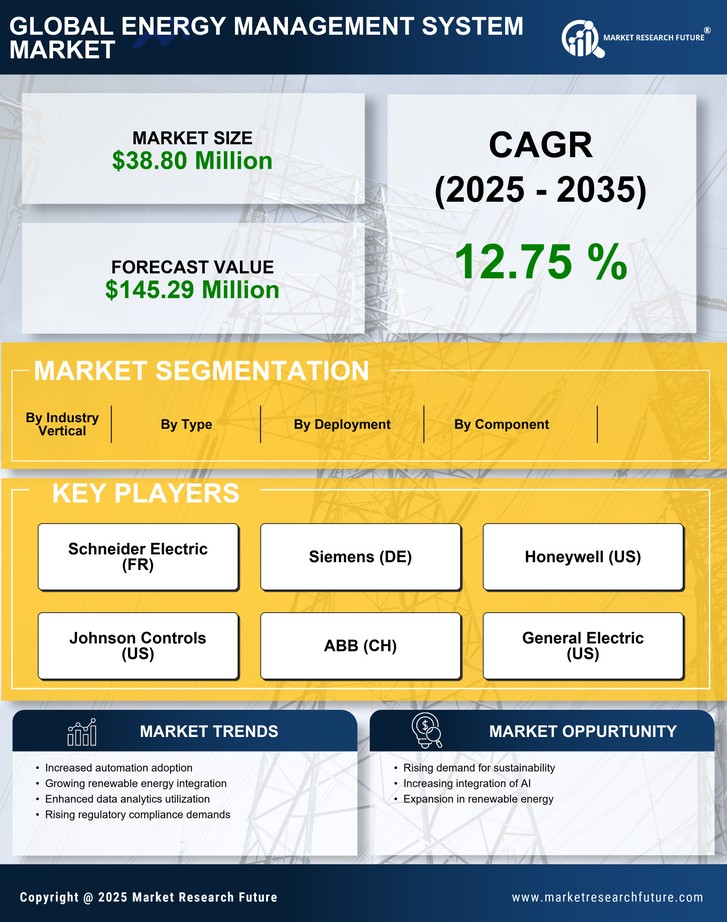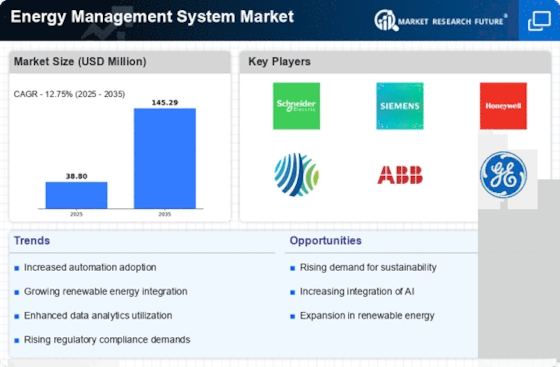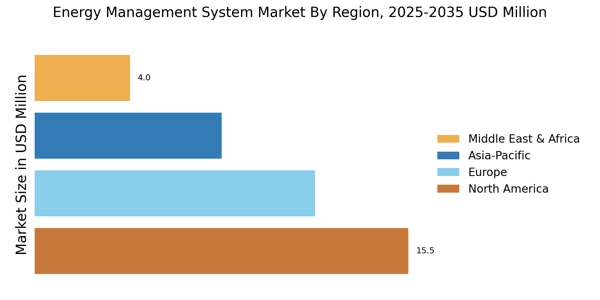Rising Energy Costs
The increasing cost of energy is a primary driver for the Energy Management System Market. As energy prices continue to rise, organizations are compelled to seek solutions that enhance energy efficiency and reduce operational costs. This trend is particularly evident in sectors such as manufacturing and commercial real estate, where energy expenditures can account for a significant portion of total operating costs. According to recent data, energy costs have surged by approximately 20% over the past five years, prompting businesses to invest in energy management systems. These systems enable organizations to monitor, control, and optimize their energy consumption, thereby mitigating the impact of rising costs. Consequently, the demand for energy management solutions is expected to grow as companies strive to maintain profitability while adhering to sustainability goals.
Increased Focus on Sustainability
The growing emphasis on sustainability is reshaping the Energy Management System Market. Organizations are increasingly recognizing the importance of reducing their carbon footprint and enhancing their environmental stewardship. This shift is driven by consumer preferences, regulatory pressures, and corporate social responsibility initiatives. Many companies are setting ambitious sustainability targets, which often include significant reductions in energy consumption and greenhouse gas emissions. As a result, energy management systems are being adopted to facilitate these goals. For instance, businesses that implement energy management solutions can achieve energy savings of up to 30%, thereby contributing to their sustainability objectives. This trend is likely to continue as stakeholders demand greater transparency and accountability in environmental practices.
Government Incentives and Policies
Government initiatives and policies play a crucial role in shaping the Energy Management System Market. Many governments are implementing incentives to promote energy efficiency and the adoption of renewable energy sources. These incentives may include tax credits, grants, and rebates for organizations that invest in energy management systems. Additionally, regulatory frameworks are being established to encourage compliance with energy efficiency standards. For instance, some regions have mandated energy audits and reporting requirements for large enterprises, further driving the need for effective energy management solutions. As organizations seek to align with these regulations and capitalize on available incentives, the demand for energy management systems is likely to increase, fostering market growth.
Growing Demand for Smart Buildings
The trend towards smart buildings is significantly influencing the Energy Management System Market. As urbanization accelerates, there is a rising demand for buildings that utilize advanced technologies to enhance operational efficiency and occupant comfort. Smart buildings leverage energy management systems to monitor and control various building systems, including lighting, heating, and cooling. This integration not only improves energy efficiency but also enhances the overall user experience. According to industry estimates, the smart building market is expected to reach a valuation of over 500 billion dollars by 2026, indicating a robust growth trajectory. As more developers and property owners recognize the benefits of smart technologies, the adoption of energy management systems is anticipated to rise, further propelling market expansion.
Technological Advancements in Energy Management
Technological innovations are propelling the Energy Management System Market forward. The integration of advanced technologies such as artificial intelligence, machine learning, and big data analytics is enhancing the capabilities of energy management systems. These technologies enable real-time monitoring and predictive analytics, allowing organizations to make informed decisions regarding energy usage. For example, AI-driven energy management systems can optimize energy consumption patterns, leading to substantial cost savings. The market for energy management software is projected to grow at a compound annual growth rate of over 15% in the coming years, reflecting the increasing adoption of these advanced solutions. As organizations seek to leverage technology for improved energy efficiency, the demand for sophisticated energy management systems is expected to rise.

















